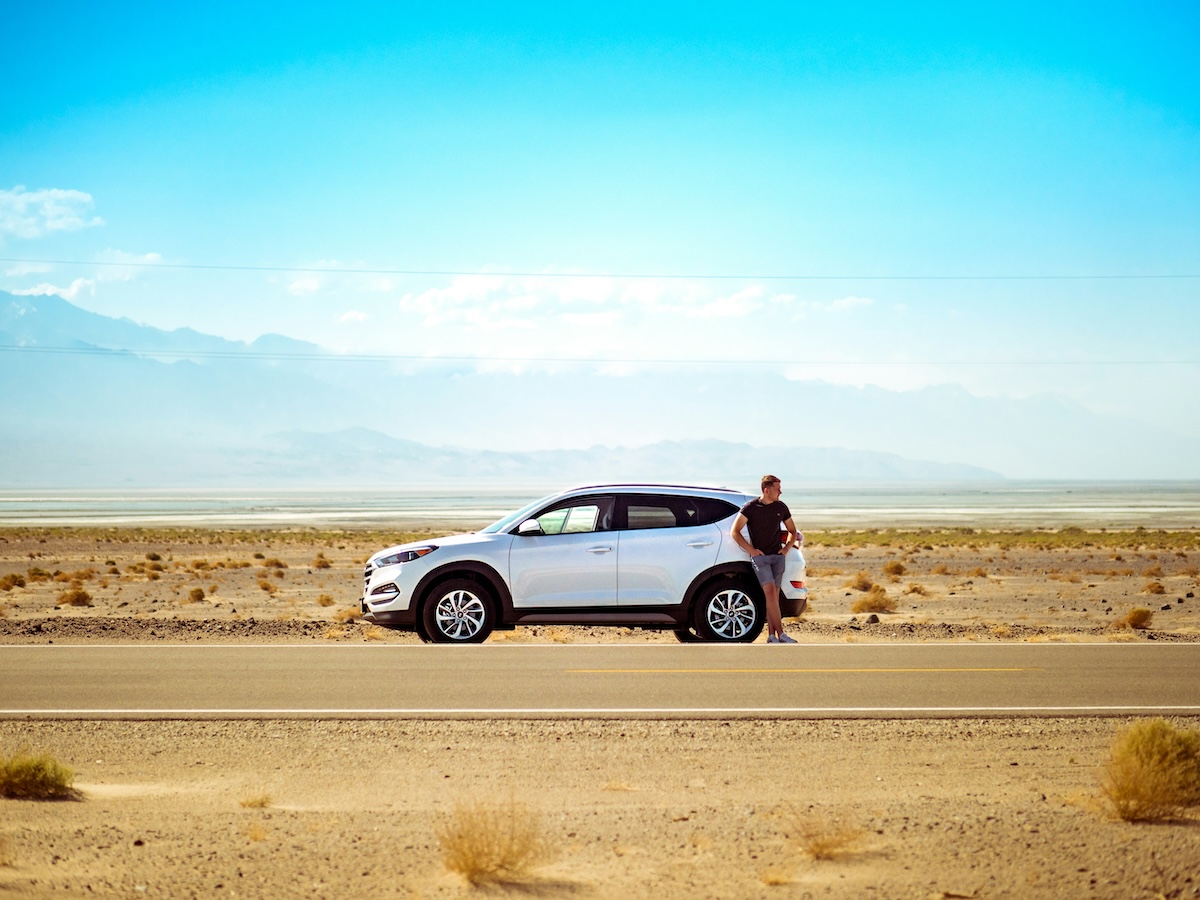
Financial Analysis: Car Leasing vs. Ownership for Frequent Travelers
By: Mike Coleman
Skip to Section
Article Summary
Frequent travelers face a classic dilemma: lease a shiny new car every few years or buy one and ride it till the wheels fall off?
You’ll get the real financial breakdown of leasing versus owning, from those sneaky depreciation costs to the credit score games dealerships play. The guide covers everything from why leasing looks cheap upfront to how ownership pays off if you’re patient enough to outlast your car loan. Plus, you’ll learn about maintenance headaches, insurance costs, and why your credit score matters more than you think when negotiating either deal.
- Leasing means lower monthly payments but you’re basically renting forever – no equity, just endless payments
- New cars lose value faster than patience in rush hour traffic – depreciation hits owners hard but lessees dodge that bullet
- Leased cars come with maintenance included and warranties, while owners pay for every oil change after year three
- Good credit scores unlock better deals on both options – bad credit means you’re stuck with whatever terms they offer
- Environmental folks might prefer leasing for newer, cleaner tech, but keeping one efficient car for years beats constant manufacturing
Frequent travel offers a blend of excitement and unique logistical challenges, particularly when it comes to choosing a mode of transportation. This decision isn’t just about preference, but a complex financial consideration. Picture the joy of driving through new landscapes, the liberty of setting off at a moment’s notice, and the sense of adventure with each mile.
Yet, this lifestyle of constant movement requires practicality. It’s about striking a balance between the desire for spontaneity and the realities of economic constraints. For those with a wandering spirit, every choice, especially in transportation, is a pivotal part of their travel narrative. This journey is as much about the roads traversed as the destinations themselves.
At the heart of these decisions lies the debate between car leasing and ownership. Each option presents its own financial implications and lifestyle accommodations. Let’s compare the two to help you decide which one is the better option.
Financial Comparison: Leasing vs. Ownership
Navigating the financial landscape of car leasing versus ownership is more than just a comparison of monthly payments. It’s a complex interplay of factors that can significantly impact your budget and lifestyle as a frequent traveler. Whether you’re planning a fantastic road trip or commuting for business, understanding these financial aspects is crucial.
Short-term vs. Long-term Costs
When considering short-term costs, leasing often appears more attractive. It typically requires a lower upfront investment compared to buying a car. Monthly lease payments are usually less than loan payments for purchasing a car, making it seem like a budget-friendly option for frequent travelers. This is particularly appealing for those who prefer to have a new car every few years without the high cost of purchasing.
However, in the long-term perspective, the cost dynamics change. Ownership, despite its higher initial costs, may become more economical over time. Once a car loan is paid off, the owner only needs to cover maintenance, insurance, and fuel, without any monthly car payments. For those who keep their cars for many years, especially after the loan period, the overall expense can be lower than leasing several cars over the same time frame.
Depreciation and Resale Value
Depreciation is a significant factor in the financial equation of car ownership. A new car can lose a substantial portion of its value within the first few years. This depreciation is a cost that car owners bear, but it is not a concern for lessees. When leasing, you’re essentially paying for the car’s depreciation during the lease term, plus interest and fees, but you avoid the long-term depreciation hit.
For owners, the resale value of the car becomes an important consideration. After several years, the owner can sell or trade in the vehicle, recouping some of the initial investment. This resale value can mitigate the sting of depreciation, especially if the car is well-maintained and retains good value. However, predicting future resale values can be challenging, as it depends on various factors like the car model, market demand, and overall condition at the time of sale.
Maintenance and Insurance Costs
Leasing typically includes maintenance in the contract, making it a hassle-free choice for those who prefer not to deal with routine upkeep. This can be particularly advantageous for frequent travelers who may not have the time or inclination to manage vehicle maintenance. Additionally, leased vehicles are usually under warranty, covering most major repairs.
In contrast, car owners are responsible for all maintenance and repair costs once the warranty expires. These expenses can be unpredictable and might increase as the car ages. However, owners have the flexibility to choose their service providers and can control maintenance costs to some extent.
Additional Financial Considerations

Photo by Jamie Street from Unsplash
When weighing the options of car leasing versus ownership, there are additional financial elements that play a crucial role in your decision-making process. These factors can influence the overall cost-effectiveness and practicality of each option for frequent travelers.
Credit Score Impact
Your credit score significantly influences the terms you receive, whether you’re leasing or buying a car. A higher credit score can secure more favorable lease terms or lower interest rates on car loans. This difference can amount to substantial savings throughout a lease or loan.
For those with a good credit score, leasing a car might mean lower monthly payments and possibly a reduced security deposit.
However, it’s worth noting that there are options available for leasing a car with no credit, which can be a lifeline for those just starting to build their credit history. Car buyers with strong credit can access better financing options, reducing the long-term cost of ownership.
Vehicle Upgrades and Flexibility
Leasing offers the opportunity to upgrade to a new car every few years. This means you can always have access to the latest models with the most advanced technology and safety features. It’s an appealing option for those who desire the newest innovations or who find their vehicle needs changing frequently.
On the other hand, car ownership provides the flexibility to modify or sell your vehicle at any time. This can be advantageous for travelers who have specific vehicle requirements or who wish to customize their cars to suit their lifestyle. While owners aren’t restricted by lease terms, they must consider the potential impact on resale value and warranty conditions when making modifications.
Environmental Considerations
For environmentally-conscious travelers, the choice between leasing and owning can also be influenced by considerations such as fuel efficiency and emissions.
Newer leased vehicles often have the latest eco-friendly technology, which can be more fuel-efficient and have lower emissions. This aligns with a sustainable travel ethos and can also lead to savings in fuel costs.
Car owners, however, have the option to keep a fuel-efficient vehicle for many years, potentially reducing their environmental impact over the long term. They can also choose to invest in modifications that improve fuel efficiency.
Wrapping Up
Choosing between car leasing and ownership is a decision laden with financial and lifestyle implications.
Leasing offers flexibility, lower upfront costs, and the convenience of driving a new car every few years. It’s a compelling choice for those who prioritize staying abreast of the latest vehicle technologies and prefer predictable monthly expenses.
On the other hand, car ownership, despite its higher initial cost, can be more economical in the long run. It suits those who value long-term investment, flexibility in usage without mileage constraints, and the freedom to customize their vehicle.
Ultimately, the better option depends on your travel patterns, financial situation, and personal preferences.
For those who value flexibility and minimal maintenance concerns, leasing might be the way to go. However, if long-term cost savings and vehicle autonomy are your priorities, owning a car could be the more prudent choice.
Whichever path you choose, ensure it aligns with your lifestyle and brings ease and joy to your travel adventures.
About the Author
Mike is a freelance writer who researches and shares actionable advice around travel, finance, and personal growth. Read his other articles on Frayed Passport here.
Featured image by Andrea Piacquadio from Pexels
Information published on this website and across our networks can change over time. Stories and recommendations reflect the subjective opinions of our writers. You should consult multiple sources to ensure you have the most current, safe, and correct details for your own research and plans.
Frayed Passport is a participant in the Amazon Associates Program, an affiliate advertising program designed to provide a means for sites to earn advertising fees by advertising and linking to Amazon.com. We also may share links to other affiliates and sponsors in articles across our website.




